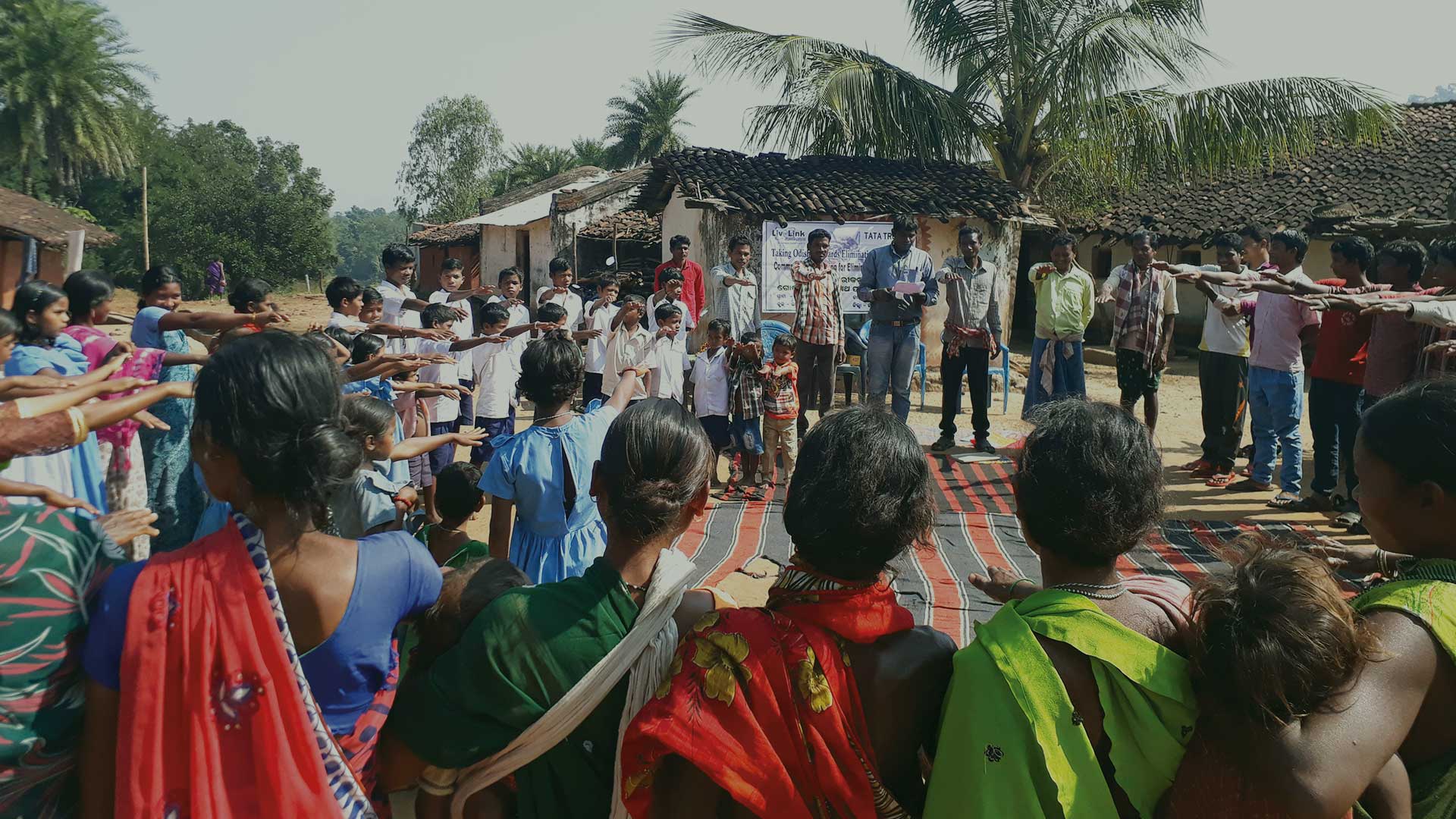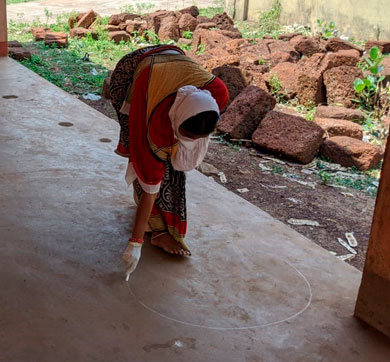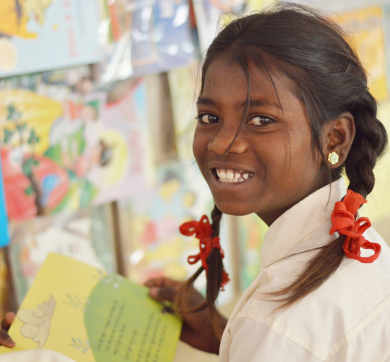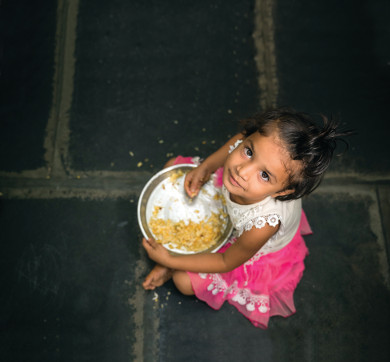April 2020 | 1500 words | 5-minute read
Lachendra Sakadaka has come to learn much about malaria — and much more about the death and devastation it can cause.
A 29-year-old tribal from Turukupa village in Odisha’s Rayagada district, Mr Sakadaka has lost two of his five children to the disease. Time was when he thought that was the destiny of tribal communities like his, cut off from the modern world and its amenities.
Traditional healers were the first, and frequently the only, recourse for Mr Sakadaka and his fellow villagers when malaria struck, and they were no match for a killer disease that took no prisoners.
Mr Sakadaka may have suffered the same end when he went down with malaria a few months back. But he did not and helping him beat back the infection was a comprehensive malaria-control programme run by Tata Trusts in South Odisha.
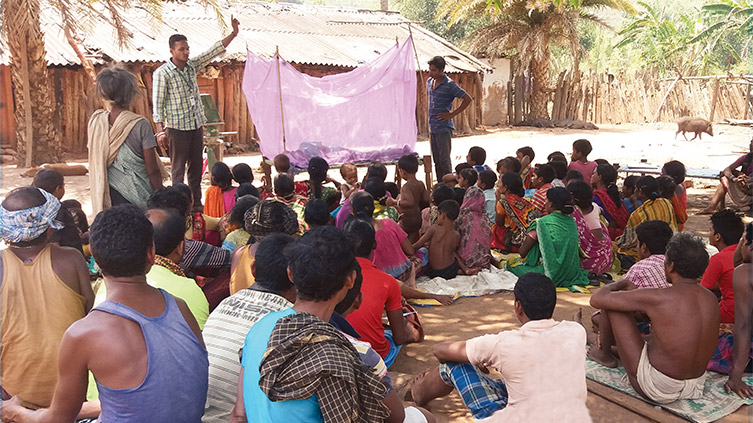
The endeavour in Odisha is the most substantial of the four malaria-control initiatives undertaken by the Trusts — the other three are in Bilaspur in Chhattisgarh, Gadchiroli in Maharashtra and Gudalur in Tamil Nadu — for reasons that range from leadership and presence in the community to strong collaborations with the state government and civil society.
Five-year plan
The current phase of the Trusts’ intervention, called ‘taking Odisha towards elimination of malaria’, aims to rid South Odisha of deaths from the disease in five years and its incidence by 40%. There’s more to the effort than that.
The Trusts have been supporting livelihood programmes in South Odisha since 2006 but these were not enough in a region where maternal and infant mortality and malnutrition existed alongside other development challenges.
“Without a comprehensive development approach that includes health and education, social and economic progress is unattainable in the Odisha hinterland,” says Jayeeta Chowdhury, the former lead for the malaria control and elimination programme. “We make this possible through smart partnerships.”
The health programme in South Odisha was initiated in 2009. The emphasis was on malaria because it was not just a biomedical problem but a socioeconomic issue, claiming the maximum lives in a place where health systems were either absent or in a derelict state.
In 2010, the South Odisha Malaria Control Programme — involving the Trusts and a network of partners — was rolled out. It started with a survey that laid bare the stark reality of the region: malaria and malnutrition were rampant.
The first phase of the programme, in 2014 and 2015, set the tone for its success, then and later. A community-based approach was adopted, with the focus on screening and treating malaria-positive patients living in high-transmission areas through camps. Important in this context was understanding the link between malaria and malnutrition, the treatment of affected children and, not least, selecting and working with the right partners.
This effort led to a decline of 60-80% in falciparum malaria in the target villages. It wasn’t enough. The Trusts needed a fresh perspective and what followed was a collaborative strategy with the state government as partner.
In 2015, the Trusts changed tack and took a plunge into direct implementing. A year later it cemented a partnership with the Government of Odisha. This enabled a scaling up of the programme and sowed the seeds for its sustainability. Rather than replicating the government’s role, it allowed the Trusts to add value to the programme.
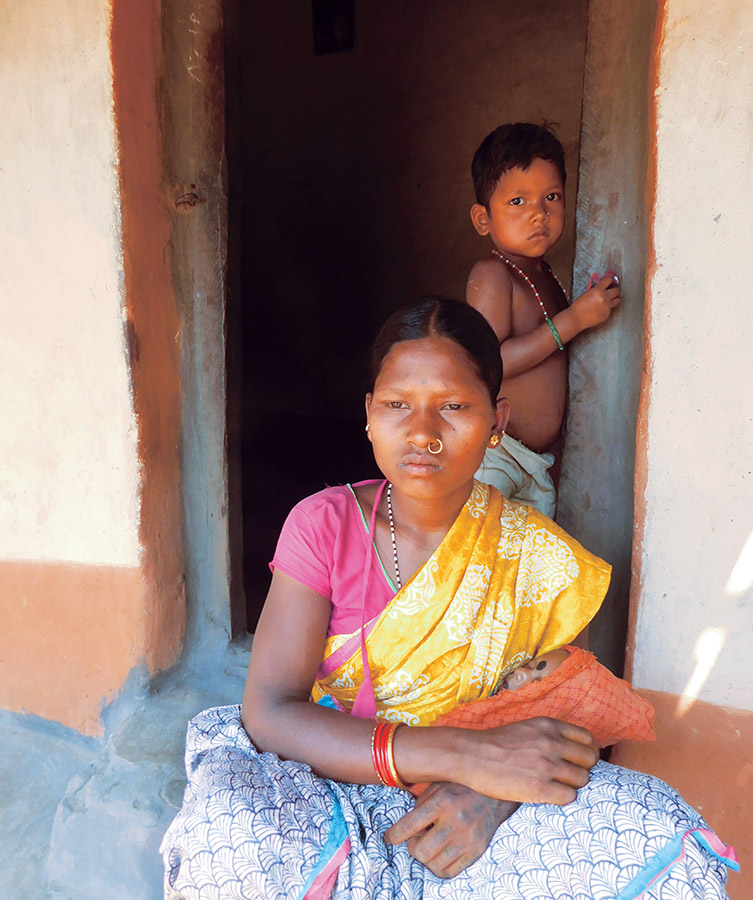
South Odisha in the crosshairs
South Odisha being a malaria-endemic zone was the reason the Trusts made it the setting for their direct intervention programme. The magnitude of the problem and, most significantly, the cost extracted by the disease in terms of physical suffering and economic loss, were the prime motivators for the Trusts to remain invested in the initiative.
Odisha accounts for 40% of malaria cases in India, a country that is burdened with about 4% of global malaria cases (according to a report by the World Health Organization). India has set 2027 as the deadline to eliminate malaria and it is on the road to making that happen.
Consistent and continual efforts have made India a beacon of hope in the global battle against the disease. According to the World Malaria Report 2018, India was the only one among 11 countries to register a decline in incidence — 24% between 2016 and 2017 — among those most affected by the disease. And the country’s success is largely due to a substantial decrease (about 80%) in malaria cases in Odisha.
The decrease has been striking in the remote and heavily-forested hilly regions where Mr Sakadaka and others from tribal communities live. Mostly landless or marginal farmers, these communities subsist by banking on forest produce. A malarial attack is an emergency for them in more ways than one.
“When I contracted malaria a couple of years ago, it cost me Rs. 1,500 to get treated at a private clinic,” says Basanti Lundruka, a 20-year-old from Turukupa. “That was a huge amount of money for me."
Beyond the obvious health and monetary benefits, there was the realisation that every other social development programme in the region would be undermined if malaria was not tackled on a priority basis.
The Trusts joined hands with the Government of Odisha in March 2016 and the agenda was cemented: malaria control and prevention, along with research and technological innovations that would improve the quality of lives of people in the southern districts of Odisha.
The state government committed itself to bearing much of the cost of the initiative: for rapid diagnostics kits, anti-malarial drugs, insecticides and volunteer wages. The Trusts were tasked with rolling out the programme in remote tribal villages where services were slender.
Five district subdivisions in South Odisha — Muniguda, Bissamcuttack, Thuamul Rampur, Lanjigarh and Kotagarh — were chosen as the focus areas. The rough and tough terrain made it difficult for the project to get running in quick time, and there were other challenges as well.
Difficulty to access
“The villages where we work are dominated by tribal communities and they are not easy to access,” says Subhasis Panda, senior general manager, Livolink Foundation, the Trusts’ partner in the project. Add to that a lack of knowledge about health.
Reaching the scattered tribal hamlets can take up to three hours on foot and that’s the only way to go. Inundated rivers and streams during the monsoon months, the dangers posed by wild animals and reptiles and finding trained people were problems confronted and overcome.
A pillar of the programme has been village health volunteers (VHVs), youth in the 20-35 age bracket chosen from within the community. The VHVs have been trained and certified under the National Vector Borne Disease Control Programme (NVBDCP), an umbrella initiative launched by the central government.
VHPs are the frontline workers, the boots on the ground, in the fight against malaria in Odisha. They are deployed in villages where there are no regular health workers. They are the first respondents in any fever episode in the village. They ensure early tests, prompt treatment and follow up for treatment compliance.
For Kumuwadi Dei, a septuagenarian from Turibhejiguda in Kalahandi district, the VHV in her village, Srimati Majhi, was a life saviour. “She gave me the medicine, ensured I took it on time and even prepared food for me,” says Ms Dei.
The VHVs have, additionally, improved the general health of the populace and the Odisha government has approved a proposal to allow the volunteers to provide medicines for other ailments at what are known as ‘fever treatment depots’. “It shows the competence of the VHVs and the trust that they have generated,” says Mr Panda.
Multi-pronged strategy
The Trusts have adopted a multipronged strategy to make the programme potent. Twice-a-year screenings of the residents of malaria-endemic villages has helped reduce parasite density. These mass screenings have helped pinpoint asymptomatic patients as well as identify cases of malnutrition, which heightens the malaria risk.
The involvement of the community at various stages of the intervention has been a vital factor in its success. Through village meetings and communication material, the tribal communities have been educated about the disease and armed with the knowhow to deal with it.
Technology has been a cornerstone of the programme. Rapid-diagnosis kits (similar to pregnancy-testing kits) were supplied by government and the Trusts deployed a smartphone-integrated microscope for diagnosis and detection. The results emerging from these efforts have been heartening.
The concerted endeavour in South Odisha has brought desperately needed respite to the tribal communities of the spread (since March 2016, when the programme began, there have been no recorded deaths due to malaria). Progress had been significant but there’s much ground left to be covered.
More investments in surveillance systems and continuous reporting, placing trained human resources in remote geographies, innovating with vector-control methods, and diagnostics and drugs for better treatment and care — all of these are on the agenda to improve the outcomes emerging from the programme. And the Trusts are ready as well.
—Samod Sarngan
Source: Tata Trusts' Horizons, September 2019 issue




